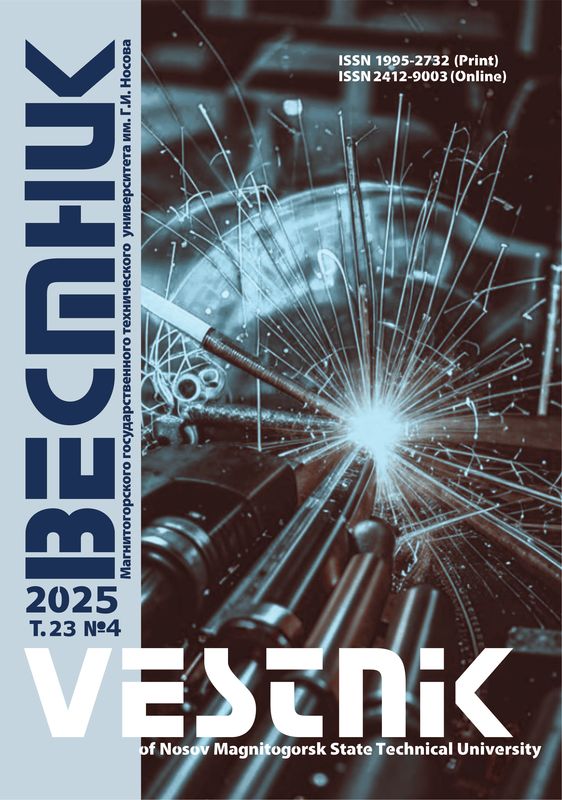DOI: 10.18503/1995-2732-2025-23-2-188-200
Abstract
Problem Statement (Relevance). In commonly accepted methods for conducting feasibility studies in the field of mechanical engineering, the complexity of projects is typically accounted for using empirical coefficients that lack strict scientific and theoretical justification. Therefore, there is a pressing need to improve existing methods of production organization to enhance the accuracy of complexity assessments for future projects, which, in turn, will enable more precise estimates of labor intensity and project timelines. Objectives. The objective of this work is to develop a scientific and methodological toolkit for assessing the complexity of new developments based on information from analogous projects. Methods Applied. The express methodology is based on methods of systems analysis, expert analysis, non-parametric statistics, as well as the methodological recommendations of the Ministry of Labor of Russia for labor standardization in the execution of research and development (R&D) projects. Originality. A unified methodology is proposed that allows for the assessment of the complexity of various projects in the field of mechanical engineering, specifically research, design, and production-technology projects. Result. A formalized approach is proposed for analyzing the complexity of new developments based on analogous (prototype) projects. A system of indicators for the preliminary assessment of the complexity of new research and development projects is presented. Acceptable numerical values for these indicators are suggested for research and development in the field of specialized mechanical engineering. Practical Relevance. The proposed express methodology allows for the assessment of the complexity of a mechanical engineering project to support effective organizational and technical decision-making, as well as further feasibility studies for research and development.
Keywords
complexity assessment, design and engineering work, R&D, analog method, analysis approach, complexity coefficient
For citation
Shcheglov D.K., Shcheglov K.N. Express Method for Assessing the Complexity of New Developments Based on Analog Projects. Vestnik Magnitogorskogo Gosudarstvennogo Tekhnicheskogo Universiteta im. G.I. Nosova [Vestnik of Nosov Magnitogorsk State Technical University]. 2025, vol. 23, no. 2, pp. 188-200. https://doi.org/10.18503/1995-2732-2025-23-2-188-200
1. Kravchenko T.K., Isaev D.V. Assessment of the complexity of innovative projects. Innovatsii [Innovations], 2017;(5(223)):90-98. (In Russ.)
2. Katysheva E.G. Methodology for the formation of a system of labor intensity standards for research products to improve the efficiency of R&D. Zapiski Gornogo instituta [Notes of the Mining Institute], 2009;(184):39-45. (In Russ.)
3. Glebova O.V., Boriskova L.A. System of indicators for assessing the effectiveness of scientific and technical developments of scientific and industrial enterprises at different stages of the life cycle. Intellekt. Innovatsii. Investitsii [Intelligence. Innovations. Investments], 2011;(3):23-29. (In Russ.)
4. Stepanova Yu.N. Criterial assessment of innovative developments. Vestnik Voronezhskogo gosudarstvennogo universiteta inzhenernyh tekhnologiy [Bulletin of the Voronezh State University of Engineering Technologies], 2021;(83(1)):455-459. (In Russ.) https://doi.org/10.20914/2310-1202-2021-1-455-459
5. Shcheglov D.K., Saibel A.G. Formalized approach to forecasting the timing and cost of developing military-technical systems. Oboronniy kompleks – nauchno-tekhnicheskomu progressu Rossii [Defense complex – scientific and technical progress of Russia], 2022;(3(155)):33-44. (In Russ.)
6. Kozin E.F. Stages and methods of assessing the effectiveness of innovation projects: structural relationships. Innovatsii [Innovations], 2012;(1(159)):100-104. (In Russ.)
7. R 50.1.028-2001 Recommendations for standardization. Information technologies for supporting the product life cycle. Methodology of functional modeling. Moscow, Rosstandart of Russia, 2001, 54 p.
8. Mikheev A.V. Big data analysis to substantiate decisions on scientific and technological development in the energy sector. Informatsionnye i matematicheskie tekhnologii v nauke i upravlenii [Information and Mathematical Technologies in Science and Management], 2020;(4(20)):158-167. https://doi.org/10.38028/ESI.2020.20.4.014 (In Russ.)
9. Chubukov A.A., Kapalyga T.N., Shcheglov D.K. Avtomatizirovannaya sistema uchyota vypuska konstruktorskoy dokumentatsii i izveshcheniy ob eyo izmenenii [Automated system for recording the release of design documentation and notifications of its changes]. Certificate of registration of computer program RU 2023687947, 19.12.2023.
10. Shcheglov D.K. Mobilnoe prilozhenie dlya opredeleniya srokov i sebestoimosti vypolneniya proektno-konstruktorskih rabot po gosudarstvennomu oboronnomu zakazu [Mobile application for determining the terms and cost of design and engineering work under a state defense order]. Certificate of registration of computer program RU 2024615912, 14.03.2024.
11. Shcheglov D.K. Express method for determining deadlines and costs of project design works by defense industry enterprises. Innovatsii v menedzhmente [Innovations in Management], 2024;(1(39)):46-54.
12. Methodological recommendations for labor standards for the performance of research and development work (approved by the Federal State Budgetary Institution Research Institute of TSS of the Ministry of Labor of Russia on March 7, 2014, No. 006). Konsul'tant Plyus [Consultant Plus]. Available at: https://www.consultant.ru/document/cons_doc_LAW_308907/576245b522294624269f6888e590b4a30abd1038/ (Accessed February 18, 2024)
13. Shcheglov D.K. et al. Razvitie proizvodstva grazhdanskoy produktsii na predpriyatiyah oboronno-promyshlennogo kompleksa: monografiya [Development of civilian production at defense industry enterprises: monograph]. Moscow: OOO IT-Service, 2021, 163 p. (In Russ.)
14. Orlov A.I. On average values. Upravlenie bolshimi sistemami: sbornik trudov [Management of large systems: collection of works], 2013;(46):88-117. (In Russ.)
15. Bühlmann P. Bootstraps for Time Series. Statistical Science. 2002;17(1):52-72
16. Ilyushchenko R.R., Osipova T.V. Processing of expert assessments during scientific projects involving experts from the federal register. Innovatika i ekspertiza [Innovation and Expertise]. 2020;(2(30)):65-79. (In Russ.)
17. Bushuev A.Yu., Kutyrkin A.V. Vvedenie v prikladnuyu teoriyu avtomatov [Introduction to the applied theory of automata]. Moscow: Bauman Moscow State Technical University, 2004, 52 p. (In Russ.)












